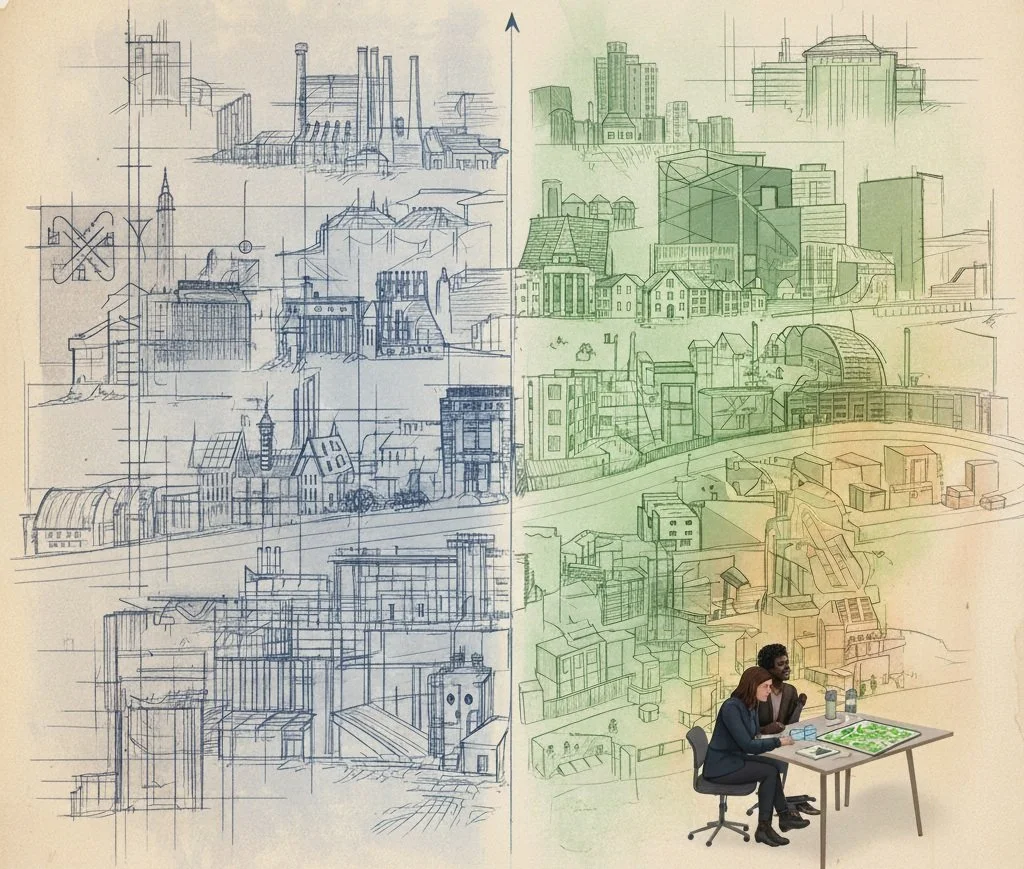The Systems We Inherit: Rewiring the Invisible Blueprints of Our Lives
We love the myth of the blank slate. We like to believe we’re innovators, always building new systems, new companies, new cities, new ways of working.
We tell ourselves we’ve moved past the old ways.
But look closer. Most of what we build rests on foundations we didn’t choose, buried deep beneath the surface of our conscious decisions.
Every country, family, and every industry carries inherited architecture, the invisible frameworks of belief, hierarchy, and behavior passed from one generation to the next like a hidden operating system. We inherit not just wealth or trauma, but assumptions: what “success” looks like, what “home” means, how much rest or joy we’re allowed before guilt begins to whisper.
This inheritance is not uniform. Some of us inherit rigid structure; others, persistent scarcity. Some inherit access and advantage; others, the resistance that forges their greatest strength. But everyone inherits a system, and that system scripts how we live, work, and human.
The Blueprint Beneath Our Lives: When the Past Becomes the Present
Systems don’t begin with policy; they begin with people, and the stories they tell themselves.
Every home, job, or relationship we build carries a kind of cultural blueprint drawn long before we arrived. This blueprint is intricate and detailed, a work of wonder. But it also carries: outdated cultural values, obsolete economic norms, and neurological wiring we literally didn’t ask for.
Consider how we think about housing; our entire framework is built by an inherited logic of ownership: the idea that stability means having your own space, your name on the deed, and a mortgage tied to decades. Yet for many today, that is an impossible standard built on mid-20th-century economic and social conditions that simply no longer exist.
The result? Entire generations are forced to live inside borrowed models. They are patching old, leaking systems with nothing but personal grit, maxed-out credit, and ever-increasing anxiety.
The worst part?
We mistake individual failure for systemic impossibility.
Work as a Mirror of Legacy: The Tyranny of Inherited Productivity
Work, perhaps more than any other realm, is pure inheritance.
We carry definitions of productivity forged during the age of industrial efficiency, inherit leadership models that prized rigid, top-down control-over-dynamic tactics. Most dangerously, we inherit the belief that burnout is not a system failure, but proof of our work ethic.
Our inner systems mirror these beliefs. The nervous system learns to match its environment: our bodies, in their wisdom, adapt to scarcity and stress as the only "normal"—and that deep, primal adaptation becomes the silent, default story of our lives until we consciously intervene and begin to rewrite the code.
Re-Architecting the Inheritance: From Reform to Revolution
You can't fix a broken blueprint with better paint.
Repairing systems, whether they be housing pipelines, toxic workplaces, or our own inner architecture, requires more than surface-level reform. It demands re-architecture.
That process is radical and deeply personal. It means asking sometimes terrifying, yet liberating questions:
What did I inherit, and what do I choose to keep?
Which of my ingrained patterns and habits were once protection, but now hold me back?
Cities and organizations can ask the same. Instead of pouring tax money into outdated, linear housing pipelines that benefit only a few, we can fundamentally re-engineer them. We can design for modularity, cooperation, and circularity. We can move the focus from individual ownership to communal stewardship, and from precarious individual security to resilient collective stability.
At the human level, that work looks like nervous system repair—learning to rest, regulate, and relate from a place of sufficiency, not depletion. At the civic level, it looks like policy rooted in messy, complex, lived human experience rather than abstract economics.
A New Lineage: Drafting the Future
Every system we build is a kind of lineage, the echo we send forward.
We either passively replicate the broken old blueprint, or we find the courage to draft a new one.
And perhaps this is the essential work of being human right now: The daily, imperfect, often frustrating attempt to evolve what we’ve inherited into something more humane, more equitable, and more sustainable.
We can’t escape the systems that birthed us—they live in our DNA, our cities, and our balance sheets.
But we can learn to rewire them from the inside out; that’s where real, foundational progress begins.
What System Did You Inherit?
Take a moment to look at your current life: your job, your home, your daily habits. Which one of those feels like a "borrowed model"? Which inherited assumption is holding you back?
We can't rewire the systems until we name them. Share in the comments below: What is the most profound system you’ve had to re-architect in your own life or work?


